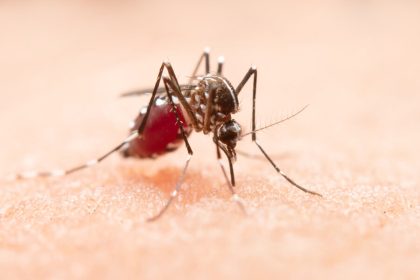Dealing with diarrhea can be both uncomfortable and inconvenient, often disrupting our daily lives.
While over-the-counter medications are readily available, many individuals are turning to natural remedies to address this common digestive issue.
In this blog, we’ll explore five highly effective natural remedies that not only provide relief but also contribute to overall digestive wellness.
Diarrhea is a prevalent digestive ailment that affects individuals of all ages worldwide.
Characterized by frequent and loose bowel movements, diarrhea can be a temporary inconvenience or a symptom of an underlying health issue.
Understanding its causes and symptoms is essential for effective management and timely intervention.
Symptoms of Diarrhea
Loose Stools: Diarrhea is marked by stools that are watery and lack the usual consistency.
Increased Frequency: Individuals with diarrhea often experience a heightened frequency of bowel movements, sometimes accompanied by a sense of urgency.
Abdominal Cramps: Discomfort and cramping in the abdominal area are common symptoms associated with diarrhea.
Dehydration: Rapid fluid loss through diarrhea can lead to dehydration, characterized by symptoms like thirst, dry mouth, and dark urine.
Fever: In cases of infectious diarrhea, fever may accompany other symptoms.
Causes of Diarrhea:
Infections: Viral, bacterial, and parasitic infections are common causes of infectious diarrhea, often resulting from contaminated food or water.
Food Poisoning: Consuming contaminated or spoiled food can trigger acute episodes of diarrhea.
Dietary Factors: Certain food intolerances, excessive consumption of certain types of foods, or high intake of artificial sweeteners may contribute to diarrhea.
Underlying Conditions: Conditions such as irritable bowel syndrome (IBS), inflammatory bowel disease (IBD), celiac disease, and others can manifest with chronic diarrhea.
Stress and Anxiety: Emotional factors, including stress and anxiety, can impact the digestive system and contribute to diarrhea.
Diarrhea caused by infections is prevalent among young children and is frequently attributed to viral agents.
Traveler’s diarrhea may manifest when visiting underdeveloped regions with water contamination.
Food poisoning commonly results from bacteria present in improperly stored or cooked food.
Continue reading to discover the 5 effective strategies for handling episodes of acute diarrhea.
1.Hydration: The First Line of Defense Against Diarrhea
Hydration is the cornerstone of managing diarrhea.
The body loses fluids and electrolytes at an accelerated rate during a bout of diarrhea, which can quickly lead to dehydration—a condition that can be particularly dangerous for vulnerable populations like children and the elderly.
To combat dehydration, it’s essential to drink ample fluids.
Water is the most straightforward choice, but other options include:
Oral Rehydration Solutions (ORS): These are specially formulated to replenish lost electrolytes and fluids.
They contain a precise blend of salts and sugars that enhance absorption.
Broths: Clear broths provide not only water but also nutrients and a small amount of electrolytes.
Diluted Fruit Juices: Particularly those rich in potassium, like banana or peach juice, can help restore potassium levels.
It’s advisable to sip small amounts of these fluids frequently throughout the day rather than consuming large quantities at once, which could potentially aggravate the diarrhea.
2. Probiotics: Restoring Balance in the Gut
Probiotics are live microorganisms that confer health benefits when consumed in adequate amounts. They are often referred to as ‘good’ or ‘friendly’ bacteria because they help maintain a healthy balance in the gut microbiota. Probiotics can be found in:
- Yogurt: Look for labels that mention “live and active cultures.”
- Kefir: A fermented milk drink that’s a potent source of probiotics.
- Fermented Foods: Such as sauerkraut, kimchi, and miso, which are rich in natural probiotics.
3. The BRAT Diet: Gentle Foods for a Troubled Tummy
The BRAT diet—bananas, rice, applesauce, and toast—is a collection of bland, low-fiber foods often recommended for gastrointestinal distress.
These foods are gentle on the stomach and can help firm up stools:
- Bananas: Besides being easy to digest, they are rich in pectin, a soluble fiber that helps absorb liquid in the intestines.
- Rice: White rice is preferable as it is low in fiber and binds stools.
- Applesauce: The cooked and pureed apples in applesauce provide pectin and also contain fructose which can help absorb excess water in the bowel.
- Toast: Plain toast without butter or jam can provide some bulk to the stools and is easy to digest.
While the BRAT diet can be helpful in the short term, it’s not nutritionally complete and should only be followed for a few days.
Avoiding Irritants: Steering Clear of Foods That Can Worsen Symptoms
When experiencing diarrhea, it’s just as important to know what not to eat as it is to know what to eat.
Certain foods can irritate the digestive system and exacerbate symptoms.
These include:
Dairy Products: Lactose can be difficult to digest during a bout of diarrhea and can worsen symptoms.
Fatty and Fried Foods: These can speed up intestinal contractions and lead to more frequent bowel movements.
Spicy Foods: Capsaicin, the compound that gives spicy foods their heat, can irritate the digestive tract.
High-Fiber Foods: Normally healthy, these can be too rough on the digestive system during diarrhea.
Caffeine and Alcohol: Both can act as diuretics, increasing fluid loss and potentially worsening dehydration.
Ginger: A Natural Remedy for Digestive Discomfort
Ginger has been used for centuries as a natural remedy for a variety of digestive complaints, including diarrhea.
Its compounds, such as gingerols and shogaols, have anti-inflammatory and antispasmodic effects that can help soothe the intestines and reduce the frequency of bowel movements:
Ginger Tea: Steeping fresh ginger in hot water can make a soothing tea.
Raw Ginger: Small amounts can be chewed for relief, but be mindful of the strong taste.
Ginger Supplements: These offer a more concentrated dose and can be easier to consume for those who don’t enjoy the taste of ginger.
While ginger is generally considered safe, it’s important to use it in moderation, as high doses can lead to discomfort and heartburn.
These remedies offer a natural approach to managing diarrhea and can be effective in providing relief.
However, it’s crucial to remember that if diarrhea persists for more than a few days, or if there are signs of severe dehydration or other complications, medical attention should be sought.
These remedies are intended to support, not replace, professional medical advice and treatment.
Always consult with a healthcare provider for guidance specific to your health needs.
Conclusion
In the pursuit of well-being, the quest for effective, natural remedies often leads us to the heart of nature’s pharmacy.
These remedies not only provide relief from the discomfort of diarrhea but also foster a holistic approach to digestive health.
In a world where pharmaceutical options abound, the gentle effectiveness of hydration, the soothing embrace of the B.R.A.T. diet, and the herbal heroes like chamomile and peppermint stand out as pillars of natural resilience against digestive disruptions.
The introduction of probiotics and the absorptive prowess of activated charcoal underscore the symbiotic relationship between our bodies and the bountiful offerings of the natural world.
As you embark on your journey toward digestive harmony, remember that these remedies are not just quick fixes; they are invitations to nurture a deeper connection with your body and the nourishing gifts nature provides.
However, it’s essential to approach natural remedies with mindfulness, recognizing that individual responses may vary.
While these natural remedies have proven their efficacy for many, it’s crucial to listen to your body and seek professional guidance if needed.
Persistent or severe symptoms should prompt a consultation with a healthcare professional to rule out underlying conditions.
In the tapestry of well-being, the integration of these natural remedies for diarrhea paints a picture of balance, resilience, and a harmonious relationship with nature’s wisdom.
By incorporating these gentle yet powerful solutions into your wellness toolkit, you not only address the immediate discomfort of diarrhea but also lay the foundation for a more robust and resilient digestive system.
In the vast expanse of nature’s offerings, the journey towards digestive well-being becomes a celebration of our innate connection with the Earth—a connection that transcends the transient discomforts of today and paves the way for enduring health and vitality tomorrow.
May these natural remedies be your companions on this journey, guiding you towards a future of digestive harmony and overall wellness.
FAQs
Can I use these natural remedies for diarrhea in children?
While certain remedies, like the B.R.A.T. diet and hydration, are generally safe for children, it’s crucial to consult with a pediatrician before introducing any new remedies, especially in young children.
How quickly can I expect relief from these natural remedies?
The timeline for relief varies based on individual factors and the severity of symptoms.
Hydration and dietary adjustments may offer relief within a day, while probiotics and herbal remedies may take a bit longer for noticeable effects.
Are there any potential side effects of using activated charcoal for diarrhea?
Activated charcoal is generally safe for short-term use.
However, it’s essential to follow recommended doses and consult with a healthcare professional, as excessive use may lead to constipation and interfere with nutrient absorption.
Can I continue these remedies if my diarrhea persists for an extended period?
While these remedies are effective for many, persistent diarrhea may indicate an underlying issue.
If symptoms endure, it’s advisable to seek professional medical advice for a thorough evaluation and appropriate guidance.
Are there any specific dietary restrictions while using these remedies?
The B.R.A.T. diet emphasizes bananas, rice, applesauce, and toast, providing a gentle approach.
However, it’s wise to avoid foods that may exacerbate symptoms, such as spicy or greasy foods.
Listen to your body’s cues and choose easily digestible options.
Can I use probiotics if I am lactose intolerant?
Yes, many probiotics are available in lactose-free forms, including supplements and certain dairy-free probiotic-rich foods.
Check product labels and consult with a healthcare professional to find suitable options for your specific needs.





